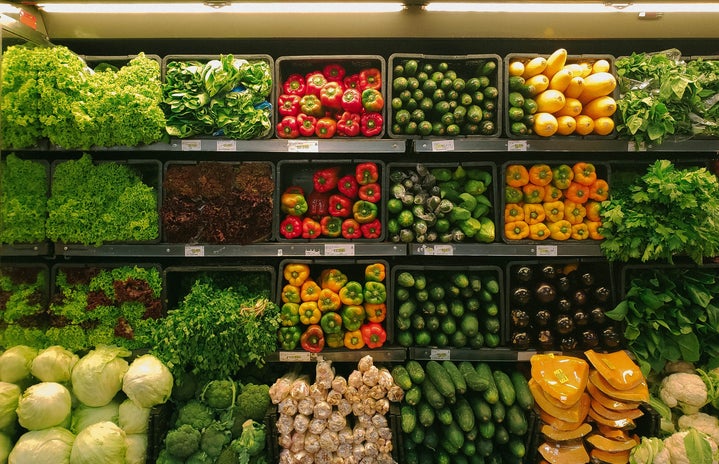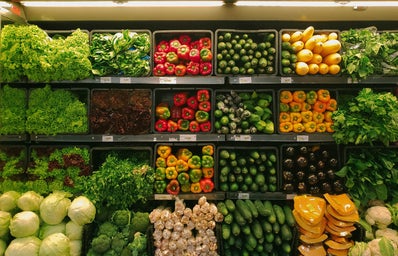The other day, I went grocery shopping with one of my friends for snacks and dinner for the night. The bill came out to over a hundred dollars for snacks, meat, and produce. As a university student, spending that much money on a dinner’s worth of groceries is a nightmare. So, here are some tips and tricks I’ve found to lower the costs of my grocery bills.
- Plan out your grocery trips
Usually, I like to plan in advance what I’ll be making for that week (a.k.a meal-prepping). This plan is curated by checking what promotions groceries stores have for their products. You can check with physical flyers, or my personal favorite: the Flipp app. It has all the flyers of the grocery stores in the area of your choice. For example, there was a week where peppers, tomatoes, and cucumbers were on sale, so I chose to make pasta salad.
- Price Matching
To step up your game, you can try price matching at grocery stores. NOTE: only certain grocery stores allow price matching — this includes Nofrills, Freshco, and Real Canadian Superstore. You can easily check if your grocery store allows price matching by searching it up on Google.
What’s price matching? It’s when grocery stores compare prices with their competitors — so, if a product is cheaper at a competitors’, then the grocery store will match their price. This allows you to save that extra dollar without going to different stores for their steals and deals. While that might not sound like a lot, it adds up over time.

- Don’t shop while hungry
Grabbing groceries on an empty stomach is a bad idea. You’re bound to make poor decisions that wouldn’t be beneficial for your upcoming meals and wallet. There have been studies that showed those who shopped with a growling belly would choose more food and spend more. General rule of thumb, try to go grocery shopping after you’ve eaten.

- Farmer’s Markets (Kitchener Market & St. Jacobs Market)
For cheaper produce, I found that farmer’s markets tend to sell them at a discounted price, and it’s occasionally fresher. I spent $23 at Kitchener Market and left with 16 peppers (for me and my roomates), a basket of nectarines, a basket of rambutan, 6-7 avocados, 2 pints of strawberries, 2 pints of raspberries, and a honeydew. There was a variety of fruits and vegetables available ranging from $1 to $10 max, depending on the quantity and type of produce. The only downside would be that they have certain hours of operation, and they’re definitely farther than your local grocery store. For example, Kitchener Market is only open on Saturdays from 7a.m. to 2p.m. and it gets hectic( but cheaper) towards closing.
5. Coupons (In store and Online)
Coupons can be found in store on tear pads and occasionally online. Sobeys has a good chunk of coupons available in store, and some of my favorite online coupon websites include: SmartSource, Tasty Reward, Go Coupons. Make sure you read the fine print to check the expiration date, how the coupon works, and whether the products match.
I hope these tips will help you make the most out of your grocery budget like they did for me. Happy shopping!



